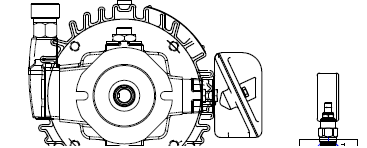SIL3 Certification

Functional Safety has been adopted in many industries and applications to reduce the risk of failure, including oil and gas, nuclear plants, manufacturing, automotive, transportation and medical. Many forward thinking companies recognize the importance of Functional Safety, not just as a means of achieving specific safety goals, but as a way to reduce product-related costs and product lifetime expenses

Several standards have been developed to help provide requirements on how to design, implement, operate and maintain systems to ensure tolerable risk levels. Two internationally recognized standards for Functional Safety are the IEC 61508 (Functional Safety of Electrical/Electronic/Programmable Electronic Safety-Related Systems) and the related IEC 61511 (Functional Safety – Safety Instrumented Systems for the Process Industry Sector). These standards were created to address electrical, electronic and programmable electronic safety related systems. Safety engineers around the globe use products that are certified to these standards to help ensure safety systems work as intended and offer risk reduction to tolerable levels. So how does a hydraulic cylinder fall under these standards? Simple—many safety-related systems require the activation of a hydraulic cylinder to perform a safety-related activity. If the hydraulic cylinder does not perform its function, the safety system may fail. Consequently, hydraulic cylinders are also in the scope of these standards.
Safety Integrity Level (SIL)
A key factor defined and used in the IEC 61508 and IEC 61511 standards is Safety Integrity Level, also known as SIL. SIL offers an objective rating that represents how well a product development process prevents “Systematic” failures and how well a product’s design offers resistance against “random” failures, given assumed operating conditions. In simpler terms, SIL is a measure of reliability of the product. IEC 61508 defines SIL levels or categories from 1 to 4, with 4 providing the highest level of reliability. To achieve a SIL rating, one requirement is the completion of a Failure Modes, Effects and Diagnostic Analysis (FMEDA). The evaluation determines key failure rate values that are used by Functional Safety designers to calculate the reliability of a system. The manufacturer of SIL products must make the results of the related FMEDA available. For example, when a design is using a SIL 3-capable cylinder, the designer must refer to the cylinder’s SIL 3 results (in conjunction with SIL information from the system’s other components), in order to calculate the reliability of the system. In addition to the FMEDA, all SIL products must include a document that describes the operational conditions, including required maintenance, where the FMEDA results are valid.
Certification
Milwaukee Cylinder achieved its SIL 3 certification through the third party organization, exida. As a leading authority in the field of Functional Safety, exida provides qualified customers with certification to a number of Functional Safety and security standards. To achieve this certification, applicable Milwaukee Cylinder designs were subject to a detailed reliability analysis by exida experts. This analysis demonstrated the product design met the stringent SIL 3 requirements. Additionally, Milwaukee Cylinder operations and quality processes to be used in its SIL 3 products were also audited by exida as part of the certification, and found to comply with the rigorous SIL 3 standards. Using exida as our third party vendor also offers several benefits for Milwaukee Cylinder customers and Functional Safety designers. Exida maintains an online library of companies offering SIL capable product, providing a valuable resource to find SIL capable products for an entire system. In addition, exida offers Functional Safety software used in designing Functional Safety systems that come pre-loaded with FMEDA data, making it easy for designers to instantly incorporate a specific cylinder into their designs. All Milwaukee Cylinder SIL 3 capable products receive a special mark permanently stamped into the endcap surface. This provides assurance to designers and end users that their cylinder is SIL 3 capable.
What This All Means
SIL Certification is an objective way of comparing products. Products and companies that are SIL Certified have subjected their designs and processes to the on-going requirements of SIL standards. Products that have achieved SIL 3 Certification have met stringent design and quality requirements. Whether a company needs components for a Functional Safety application, or just requires a highly reliable product, SIL 3 Certification provides objective assurance of quality and reliability.



